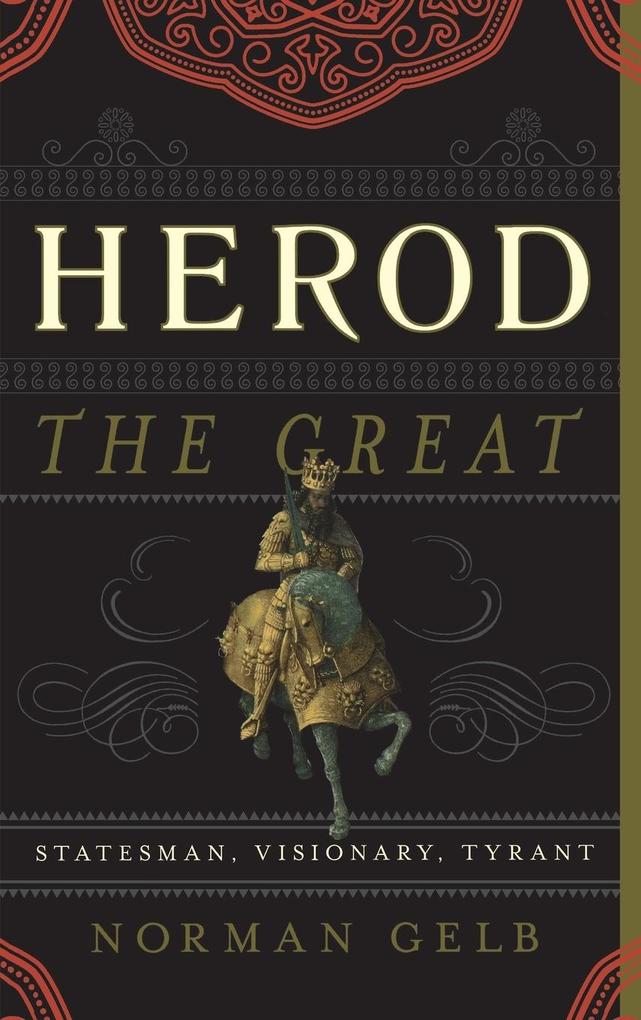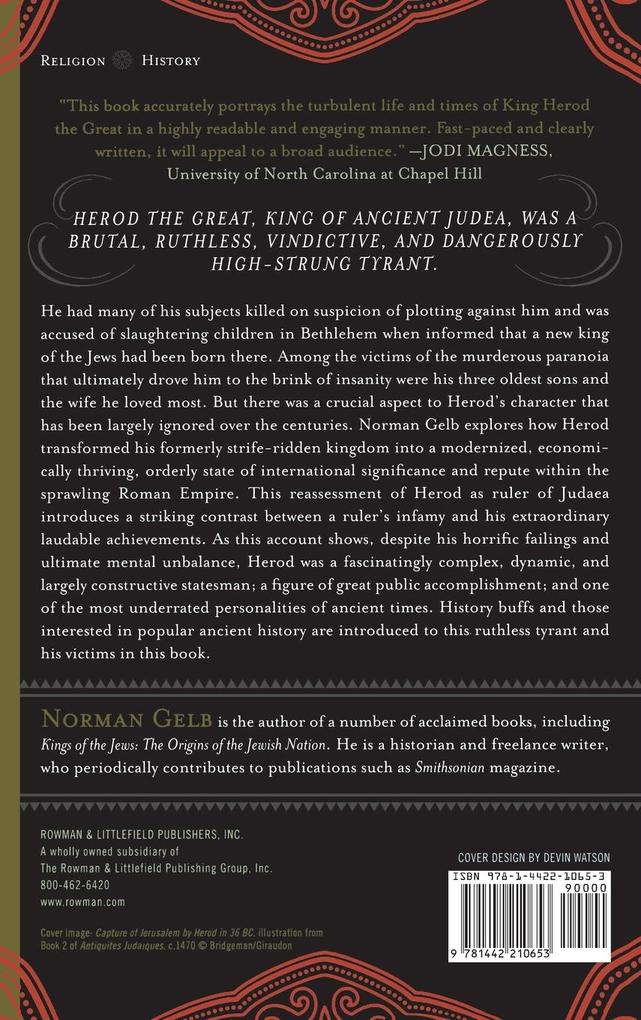This book accurately portrays the turbulent life and times of King Herod the Great in a highly readable and engaging manner. Fast-paced and clearly written, it will appeal to a broad audience. -- Jodi Magness, University of North Carolina at Chapel Hill In 2010, historian Gelb (Dunkirk: The Complete Story in the First Step in the Defeat of Hitler) switched subjects, moving from World War II to the line of Jewish kings, examining the 52 monarchs who ruled until 70 CE. He offers an in-depth analysis of one of those kings, Herod the Great, appointed king of Judea by the Romans in 37 BCE, holding the office for more than 30 years until he died. Most of what we know about Herod is from the historian Josephus, who was born forty years after Herod died. Josephus and other ancient chroniclers depicted Herod as cold, calculating, cruel, and brutal. He mistrusted most of his ten wives and sons, executing at least one of the wives and a number of the sons, fearing that they were trying to replace him. Despite Herod's dark streak and mental instability, Gelb tries to revamp the monarch's image, stressing the cities and structures he built, including his reconstruction of the Temple, and asserting that "his positive achievements may be considered to have outweighed his brutality and tyrannical rule." This is an exemplary illustration of revisionist history. Publishers Weekly Herod was an outsider who came to power when appointed King of Judea (he reigned from 37 BCE to his death in 4 BCE) during a tumultuous time for the Roman Empire. He held onto power through political schemes and assassinations, not unlike the rest of the Roman elite. He was such a divisive figure that an unbiased and straightforward biography is difficult to achieve-whether Herod was as bad as his historical reputation indicates has been debated for centuries. Historian Gelb's (Kings of the Jews: Exploring the Origins of the Jewish Nation) subtitle summarizes his take on Herod: Herod's statesmanship and vision outweigh his tyranny. Gelb takes pains to place Herod's actions in historical context by starting the narrative well before Herod's birth and ending well after his death. While the book is by no means an apology for Herod, Gelb tends to favor arguments that show Herod in a more positive light. The author does not rigorously question the early sources. VERDICT This is an excellent choice for nonspecialists who want a straightforward biography of Herod, particularly those who are interested in Roman or biblical history Library Journal This account not only delivers a full portrait of a historically important figure but also offers much about the political and religious history of the time. Booklist













